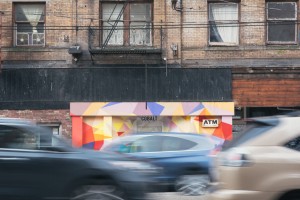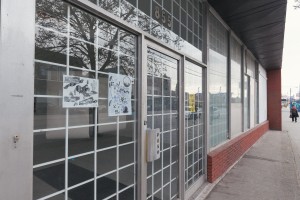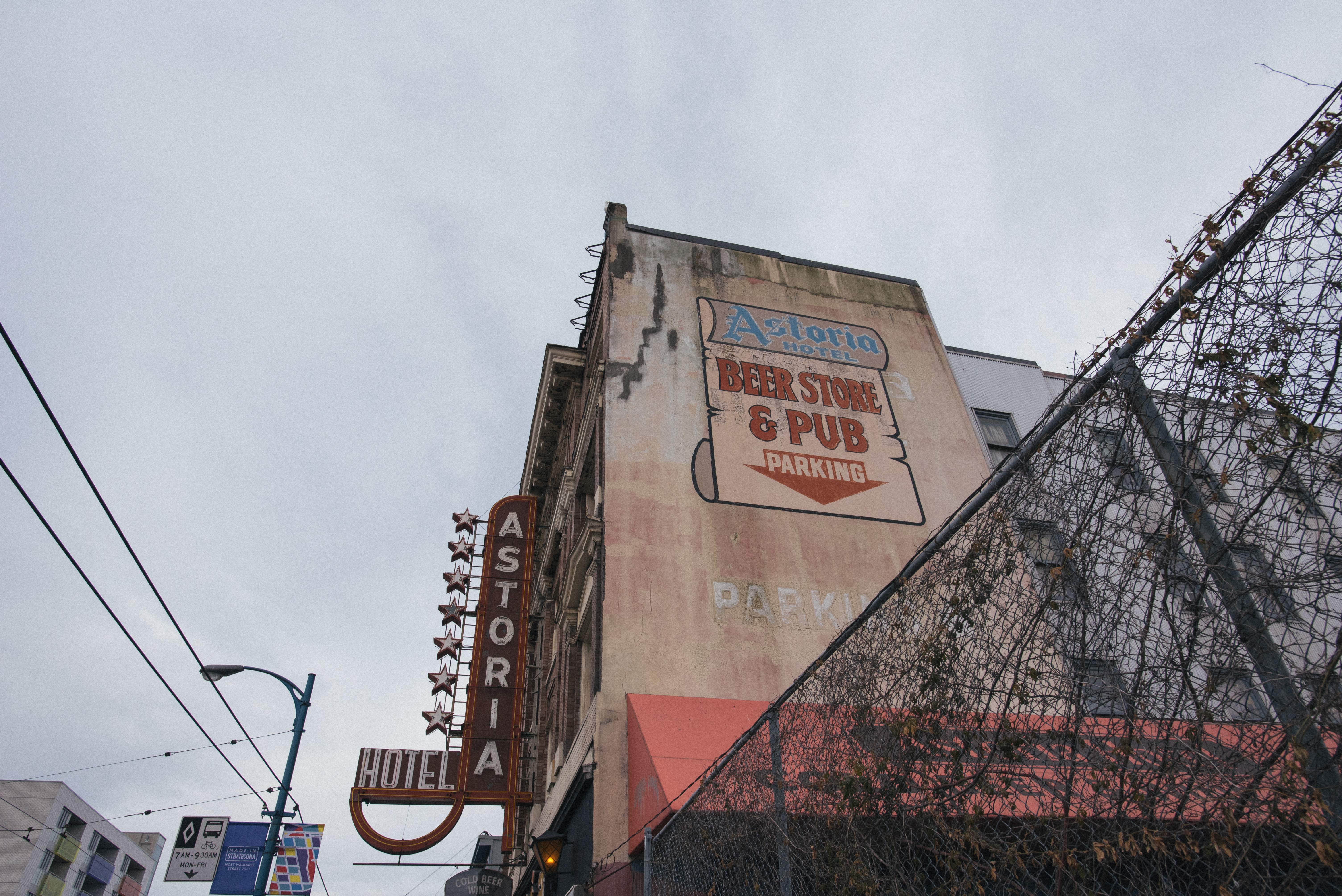Crises are exciting, in a harrowing sort of way, and if you’ve spent any time in Vancouver, you’ll know we’re pretty good at them. Opioids, housing, losing a hockey game — you’ve got plenty of options to get your blood-boiling and your temper flared. But there’s a new crisis in town that has locals buzzing, drawing the ire of creatives, concertgoers, and business owners alike: the music venue crisis. The only problem is that we don’t have one.

To be fair, Vancouver has experienced some tumult recently in regards to live music spaces, and is still experiencing closures and displacement currently. The much-beloved Red Gate Arts Society is being shut down at the end of May, at the behest of perennial bogeyman and building-owner Chip Wilson (Lululemon, Low Tide Properties). So too is the Cobalt closing its doors, as the 108-year-old building has been deemed unsafe to operate by the City, and the extensive repairs needed to save the space have been consistently delayed by its owners, the Sahota family. But even combined with all the other rehearsal, performance and studio spaces that have been bricked up and bulldozed over the past decade, is this enough to consider what the city is experiencing as a crisis? The answer, per scholars and venue owners, is a cautious “No.”
Ryan McCormick is a Master of Public Policy, and a co-founder of the non-profit Safe Amplification Site Society that advocates for all-ages and grassroots art spaces in Vancouver.
“This is big money,” he says of the issues facing many local music venues today. “This is all very connected to the housing crisis and the gentrification of the city […] So you can’t just look at music venues on their own.”
McCormick isn’t the only one to feel this way. The Rickshaw Theatre’s manager and proprietor, Mo Tarmohamed, expresses similar concerns over the rising costs of running concert spaces today.

“Now that land values have become so lucrative, no venue can create enough revenue compared to what you might get if you develop that property for its best use,” Tarmohamed explains.
However, neither McCormick nor Tarmohamed see what Vancouver is experiencing today as unusual, or even unhealthy, for musicians and concertgoers. While each sees issues and room for improvement within the overall ecosystem of Vancouver’s venues, neither feel that we are in a particularly dark time.
As Tarmohamed opines, “I really don’t want to characterize what’s happening now as a dearth of venues, because frankly, there are lots of venues around. People get fixated on the usual suspects: Richards On Richards, the Town Pump, the ‘Back in the day we had so many’ attitude […] Venues open and venues close; it’s just the reality of the way things are.”
Although McCormick and Tarmohamed find common ground on the effects that unaffordability have had on the city’s music scene, and carefully cashier the notion that we’re in the midst of a venue crisis, both express distinct opinions on what the City of Vancouver should be doing to prevent a crisis from truly happening.
“A lot of the regulations that have caused venues to close in the past are ostensibly geared towards increasing safety, or decreasing unsafe conditions,” says McCormick, citing both his own research and personal experience. “But I think the problem with that approach, without encouraging a safer alternative, is people are just going to go into hiding more and more […] So the regulations that are intended to promote safety end up promoting riskier behaviour.”


McCormick points to the significant turnaround in the City’s attitude towards skateboarding since the 1990s as a reference point, going from a heavily policed act of delinquency to a protected and publicly supported activity. What’s more, he notes the need to empower underground and grassroots venues to keep them safe and accessible to all-ages, rather than simply fining and foreclosing them.
“In the wintertime, the City gives out free salt,” he says, making a comparison that the same should be done with music venues and safety equipment. “No one is like, ‘Let me see what angle your sidewalk is built at,’ […] It’s no-questions-asked, ‘You need this for safety, here you go.’”
While Tarmohamed agrees that less-than-official spaces need more consideration from municipal government, his position as a venue operator outside of the underground naturally shifts his focus.
“The perception of venue owners is that there’s distrust from [the City] that owners are not responsible enough to conduct their business in a responsible manner,” he says. “So, they impose a whole bunch of rules they wouldn’t on other businesses.”
In particular, Tarmohamed expresses frustration with hosting all-ages shows at venues like the Rickshaw. The lack of legal all-ages concerts in Vancouver is in no small part rooted in prohibitive liquor laws that restrict venues’ ability to allow under-nineteens into shows with alcohol present. With more and more Vancouverites being driven out of the city due to unaffordability, all-ages shows are one possible solution that Tarmohamed sees to help expand the Rickshaw’s audience and keep their lights on.

“I’d love to have more shows that are all-ages, because, in essence, [young people] are the next generation of concertgoers,” he says. “They’re perfectly welcome to go see the Lions, or the Whitecaps, or the Canucks, where drinks are served, and yet for some reason live music has this negative perception […] because we don’t trust venue owners to police the rules.”
While the City of Vancouver did respond to our request for comment, the statement they provided is limp to say the least. Per Communications Manager Lauren Stasila: “A variety of challenges facing musicians in the city, and suggestions for how the City can better work with the music industry, have been brought up throughout the engagement process for the Vancouver Music Strategy and will be a consideration as part of the recommendations provided to council this summer.”

Not much is known about the Vancouver Music Strategy, other than information provided in a recent press release. It’s expressed purpose “is to increase the integration and awareness for the music industry by the City,” but details of how the City will better address the needs of the industry and its members are fuzzy. What’s more, a glance at the Strategy’s steering committee leaves much to be desired. Included are the co-chair of Music BC, the Executive Vice President of Music Canada, and two members of the symphony and opera orchestras, among others. What the committee lacks, however, is any meaningful representation from independent and underground voices in Vancouver’s music scene, opting instead for the guidance of figures either tied to government directly, or artists among the upper echelon. Though the steering committee will be advised by “individual artists, grassroots organizations, [and] youth, across a wide intersection of genres and ages,” it remains to be seen what the overall impact these groups will have on the final Strategy presented to City Council.
Though it feels rash to call what Vancouver is experiencing a genuine crisis of venues, that doesn’t mean that more work isn’t necessary. Between the concerns of McCormick and Tarmohamed, and the mounting issues of unaffordability and displacement felt city-wide, the municipal government has their work cut out for them with their shiny new Music Strategy, and whatever it truly entails.


